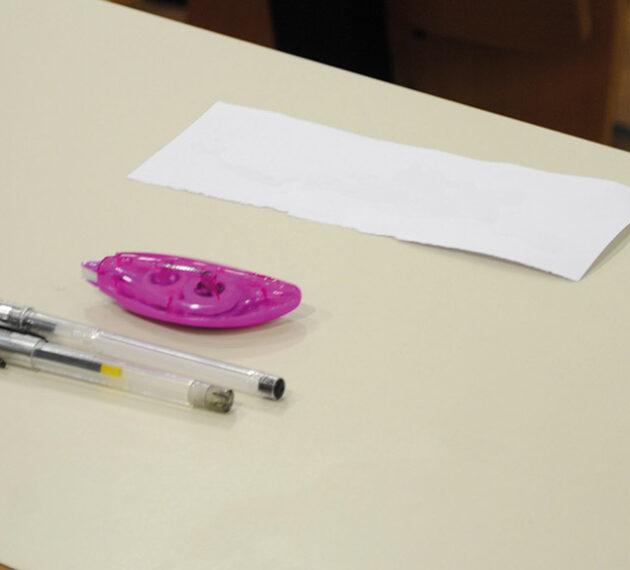We are always concerned about the quality of our services and our intensive and semi-intensive FLE (French as a Foreign Language) courses are ideal for students and professionals wishing to learn French in a proactive, immersive and friendly environment. Group sizes average between 18 and 25 students depending on the discipline, to promote intercultural interaction and exchanges.
This programme is for you if you are prioritising oral comprehension and expression in order to be able to express yourself fluently in all situations of everyday life: introducing yourself, asking for information, expressing opinions, discussing, winning over…
University Diploma in French Studies
Our programmes are certified by a language diploma approved by the ADCUEFE (group of FLE university centres) : a DUEF (University Diploma in French Studies), corresponding to the level achieved during the semester will be issued on completion, after passing the exams.
This University Diploma requires between 208 and 260 hours of course work. It includes a statement of the level achieved.
Award process
- You must be enrolled at the ILCF for a half-year intensive programme or a half-year semi-intensive programme.
- You must pass the continuous assessments and participate during classes.
- You must obtain the average score in continuous assessment.
- You must work diligently. If these steps are not completed, only a certificate of education will be awarded.
Levels
D.U.E.F. A1 (A 1 of the CEFRL- Breakthrough)
ORGANISATION
Courses are structured around the skill levels of the Common European Framework of Reference for Languages (CEFRL): continuous oral production (speaking) and oral interaction, oral comprehension, written production (writing) and written comprehension.
GOALS
- To be capable of understanding a conversation as well as simple sentences and information encountered in everyday life.
- To be able to ask and answer simple questions and to provide basic descriptions of familiar environments.
- To be able to fill in forms and write short messages and letters to ask for or provide basic information.
CONTENT
The curriculum is based on the Common European Framework of Reference for Languages (CEFRL).
Classes are taught using a guidebook (communicative and practical approach), real-life spoken and written documents adapted for teaching purposes, role-playing and immersion, collaborative projects.
The emphasis is placed on oral comprehension and expression.
COMPLEMENTARY ACTIVITIES
Phonetics in the language lab
Individual and guided work in multimedia rooms.
A variety of discovery activities (practical and cultural) around the city of Lyon.
Mentoring
ASSESSMENT
Continuous assessment and final exam.
Diligence and completion of all work required by teachers during the session.
D.U.E.F. A2 (A1 of the CEFRL- Waystage)
ORGANISATION
Courses are structured around the skill levels of the Common European Framework of Reference for Languages (CEFRL) : continuous oral production (speaking) and oral interaction, oral comprehension, written production (writing) and written comprehension.
GOALS
- To understand the essential meaning of written and spoken messages and simple conversations in everyday life.
- To be able to hold short conversations about familiar subjects and activities. To be able to produce a series of sentences to describe one's family and current or recent life events.
- To be able to write short messages and simple letters such as invitations, thank-you letters and apologies etc…
CONTENT
The curriculum is based on the Common European Framework of Reference for Languages (CEFRL).
Classes are taught using a guidebook (communicative and practical approach), real-life spoken and written documents adapted for teaching purposes, role-playing and immersion, collaborative projects.
The emphasis is placed on oral comprehension and expression.
COMPLEMENTARY ACTIVITIES
Phonetics in the language lab
Individual and guided work in multimedia rooms.
A variety of discovery activities (practical and cultural) around the city of Lyon.
Mentoring.
ASSESSMENT
Continuous assessment and final exam.
Diligence and completion of all work required by teachers during the session.
D.U.E.F. B1 (B1 of the CEFRL - Threshold)
ORGANISATION
Courses are structured around the skill levels of the Common European Framework of Reference for Languages (CEFRL): continuous oral production (speaking) and oral interaction, oral comprehension, written production (writing) and written comprehension.
GOALS
- To understand written and spoken factual information and to handle situations arising in everyday life in fluent French.
- To be able to handle most situations arising in everyday life and to engage in conversations on familiar subjects without prior preparation.
- To be able to write simple and coherent texts on familiar subjects and to express one's feelings and impressions regarding experiences.
- To be able to read standard French fairly easily (various media, short literary texts, current discussions and conversations).
- To be able to speak fairly easily and clearly when interacting with other people on a continuous basis on issues of the day and subjects relating to their interests.
- To be able to write clear and detailed texts in order to recount, describe or explain a phenomenon. To know how to write a reasoned letter.
CONTENT
The curriculum is based on the Common European Framework of Reference for Languages (CEFRL).
Classes are taught using a guidebook (communicative and practical approach), real-life spoken and written documents adapted for teaching purposes, role-playing and immersion, collaborative projects.
The emphasis is placed on oral comprehension and expression.
COMPLEMENTARY ACTIVITIES
Phonetics in the language lab
Individual and guided work in multimedia rooms.
A variety of discovery activities (practical and cultural) around the city of Lyon.
Discussions and presentations.
Mentoring.
ASSESSMENT
Continuous assessment and final exam.
Diligence and completion of all work required by teachers during the session.
DUEF B2 (B2 DU CECR - INTERMEDIAIRE - INDEPENDANT)
ORGANISATION
Courses are structured around the skill levels of the Common European Framework of Reference for Languages (CEFRL): continuous oral production (speaking) and oral interaction, oral comprehension, written production (writing) and written comprehension.
GOALS
- To be able to read and understand long and complex journalistic articles, literary texts and groups of texts in standard French without too much effort.
- To be able to recognise points of view expressed by others and to restate the main ideas of arguments.
- To be able to write clear and well-structured explanatory and reasoned texts in a suitable style.
- To be able to express oneself with fluidity and clarity during interactions or on a continuous basis on complex subjects.
- To be able to understand spoken documents of between 3 and 8 minutes in length with note-taking (real-life radio programmes about current events).
- To identify the structure of documents and to string together ideas.
CONTENT
- The curriculum is based on the Common European Framework of Reference for Languages (CEFRL).
- Classes are taught using guidebooks (communicative and practical approach) and/or real-life spoken and written documents adapted for teaching purposes, role-playing and immersion, collaborative projects.
- Emphasis is placed on deepening cultural knowledge and knowledge regarding various disciplines with an introduction to the University methodology, as well as understanding and producing analytical texts.
COMPLEMENTARY ACTIVITIES
Individual and guided work in multimedia rooms.
Discussions, presentations.
Mentoring.
ASSESSMENT
Continuous assessment and final exam based on the skills set out in the CEFRL.
Presentation (phonetic correction, fluidity of elocution, structure of the discourse, richness of language, time management, ability to capture the attention of the audience…).
Production of sets of documents (coherence and quality of expression: structure of the discourse, lexical richness, correction of language, choice of articulators, morphosyntax, organisation of a narrative and/or argument, relevance of arguments …).
Diligence and completion of all work required by teachers during the session.
DUEF C1 (C1 of the CEFRL - Effective Operational Proficiency)
ORGANISATION
Courses are structured around the skill levels of the Common European Framework of Reference for Languages (CEFRL): continuous oral production (speaking) and oral interaction, oral comprehension, written production (writing) and written comprehension.
GOALS
- To be able to understand practically anything heard (conferences, broadcasts, conversations) and any type of text, even if abstract.
- To be able to express oneself easily and with clarity on a continuous basis or when interacting with others and to adapt the language used to the situation.
- To be able to produce all types of texts used in the French curriculum: dissertations, summarised documents.
CONTENT
The curriculum is based on the Common European Framework of Reference for Languages (CEFRL).
Courses are taught using guidebooks, real-life spoken and written documents adapted for teaching purposes, role-playing and immersion, collaborative projects.
Emphasis is placed on deepening cultural knowledge and knowledge regarding various disciplines and University methodology.
COMPLEMENTARY ACTIVITIES
Individual and guided work in multimedia rooms.
Discussions, presentations.
Mentoring.
ASSESSMENT
Continuous assessment and final exam based on the skills set out in the CEFRL.
Presentation (phonetic correction, fluidity of elocution, structure of the discourse, richness of language, time management, ability to capture the attention of the audience…).
Production of sets of documents (coherence and quality of expression: structure of the discourse, lexical richness, correction of language, choice of articulators, morphosyntax, organization of a narrative and/or argument, relevance of arguments …).
Diligence and completion of all work required by teachers during the session.
DUEF C2 (C2 of CEFRL - Mastery)
ORGANISATION
Courses are structured around the skill levels of the Common European Framework of Reference for Languages (CEFRL): continuous oral production (speaking) and oral interaction, oral comprehension, written production (writing) and written comprehension.
GOALS
- To be able to understand everything said in any situation arising in everyday and university life, including idiomatic phrases. To be able to understand all nuances of a text, even if it is abstract.
- To be able to express oneself comfortably and clearly on a continuous basis or when interacting with others and to be able to use idiomatic phrases and to nuance points of view.
- To be able to produce any type of text used in everyday life (letters) and university life (dissertations, summary texts, literary critiques, comments and summaries)
CONTENT
The curriculum is based on the Common European Framework of Reference for Languages (CEFRL).
Courses are taught using guidebooks, real-life spoken and written documents adapted for teaching purposes, role-playing and immersion, collaborative projects.
Emphasis is placed on deepening cultural knowledge and knowledge regarding various disciplines and University methodology.
COMPLEMENTARY ACTIVITIES
Individual and guided work in multimedia rooms.
Discussions, presentations.
Mentoring.
ASSESSMENT
Continuous assessment and final exam based on the skills set out in the CEFRL.
Presentation (phonetic correction, fluidity of elocution, structure of the discourse, richness of language, time management, ability to capture the attention of the audience…).
Production of sets of documents (coherence and quality of expression: structure of the discourse, lexical richness, correction of language, choice of articulators, morphosyntax, organisation of a narrative and/or argument, relevance of arguments …).
University production.
Diligence and completion of all work required by teachers during the session.
Our courses will also prepare you to sit the following examinations: DELF/DALF.
We offer a range of specialised courses to better meet your specific needs - conversation, written French, grammar, diploma preparation or phonetics in dedicated language labs, as well as thematic courses in multimedia labs and professional French courses…



